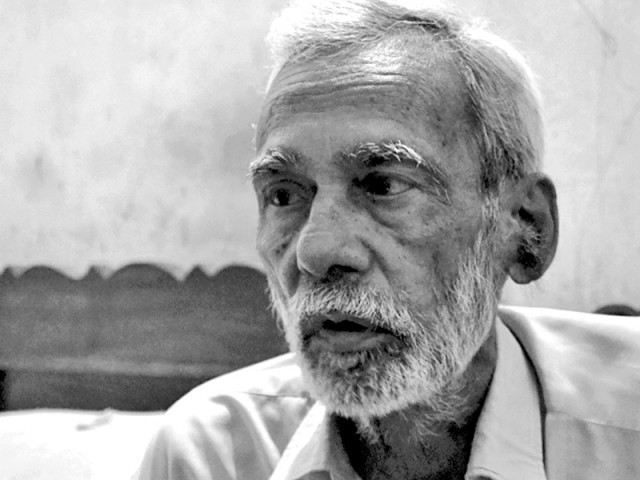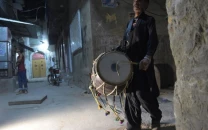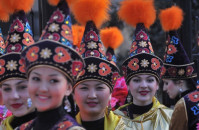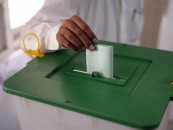Mortuary attendants - part 2/2: Recalling a history of violence
Father and son, with over 50 years experience between them, say their profession changed when General Zia took power.

According to his somewhat less philosophical son, Saleem, “it’s like any other job which one does to provide food and shelter to your family.”
When asked to recall the worst period of violence he has witnessed in the city, Inayat said, “I’ve seen a lot of bad times over the decades.” From the violence unleashed by General Ayub’s son in 1964 to the ethnic and sectarian violence that unfolded in the post-General Zia era, he remembers all the bad times.
Inayat said that during the ’60s and ’70s, rarely were there cases of gunshot victims. “Mostly we dealt with accident cases and the occasional ‘chakoo’ (knifed) victims,” he said. However, it was during General Zia’s time when gunshot cases became frequent. “This was also the time when heavily-armed men began standing outside our mortuary to threaten us and doctors if we didn’t come up with findings according to their expectations.”
Saleem said that with the current frequent waves of target killings, it has become routine for them to receive threats from, and sometimes get beaten up by, the victim’s sympathisers. “I ask what is our fault. We just do our duty,” he said.
Inayat said it was during General Naseerullah Babar’s operation in Karachi when trussed up bodies of victims started to turn up in gunny bags and eventually onto his mortuary table. Saleem says the trend continues to this day.
When asked about their worst case, the father and son were at a loss to explain which case could be considered worse than the other. Was it the “worms and insects-laden” foul-smelling bodies which they first have to clean with their hands before dissection? Was it the child whose limbs were severed in the bomb blast? Or that body of a young man that had been pumped with a hundred bullets? Or perhaps the exhumation of a 50-day-old body? They debated this among themselves without arriving at a conclusion. Each was the worst in its own way.
But when asked of any well-known personalities they operated on, Saleem immediately said he had conducted the post-mortem on the notorious dacoit, Rehman Baloch, who was killed in an alleged shootout with the police.
Inayat, however, had a regretful expression. “The ‘chocolate hero’ Waheed Murad was supposed to land on my table at Civil Hospital when he died [in 1983],” he said. Although Murad had died in Karachi, his body was taken to Lahore without a post-mortem. “Bach gaya woh meray haath say (he slipped right through my hands),” he joked.
Police surgeon Hamid Parhyar said there was no doubt that attendants such as Inayat and Saleem were the backbones of a mortuary. “Simply put, without them a mortuary is incomplete.” There are at least eight such attendants at government hospitals in the city, with four each in Jinnah hospital and Civil hospital.
Parhyar said he would not contest that most MLOs do not carry out post-mortems themselves. However, he said doctors and attendants face great danger of violence at the mortuary, especially in target killing cases. “Some doctors have stopped going to the mortuary altogether and leave everything to these attendants,” he said.
He agreed that the government should take measures to give better wages and equipment to mortuary attendants. “Apart from physical violence, they are exposed to the extreme health hazards of HIV and hepatitis since many of them work without proper protective gear such as thick gloves or a mask,” Parhyar said.
Published in The Express Tribune, April 30th, 2012.
You can read part 1 of this report here.



















COMMENTS
Comments are moderated and generally will be posted if they are on-topic and not abusive.
For more information, please see our Comments FAQ